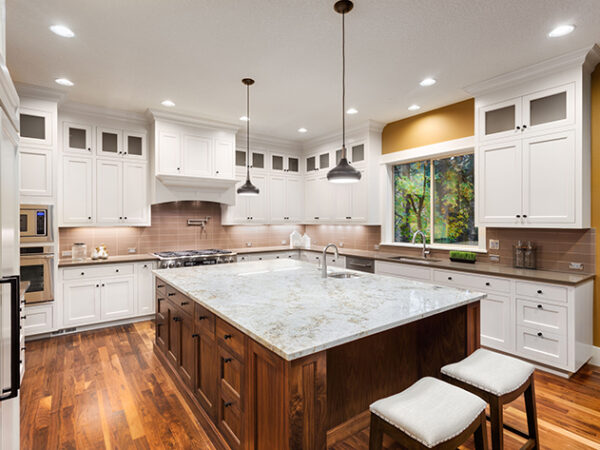Home remodeling is often seen as a way to increase property value or improve aesthetics, but it can also have a profound impact on your health. A well-planned renovation can enhance your physical well-being, boost your mental health, and improve your overall quality of life. Let’s explore six ways home remodeling can improve your health.
1. Enhanced Air Quality
One of the most significant health benefits of home remodeling is improved air quality. Old homes can harbor dust, mold, and other allergens that can affect respiratory health. By upgrading your HVAC system and incorporating better ventilation, you can reduce indoor air pollutants.
For instance, replacing old carpets with hardwood floors can eliminate a significant source of dust mites and allergens, leading to easier breathing and fewer allergic reactions.
2. Improved Lighting
Lighting plays a crucial role in our health and well-being. Natural light regulates our sleep-wake cycles, mood, and productivity. During your remodel, consider adding larger windows or skylights to increase the amount of natural light in your home.
Even switching to energy-efficient LED bulbs that mimic natural light can make a difference. Improved lighting can help reduce symptoms of depression and anxiety, and better lighting in workspaces can prevent eye strain and headaches.
3. Better Safety and Accessibility
Home remodeling can make your home safer and more accessible, particularly if you have elderly family members or individuals with mobility issues. Installing grab bars in bathrooms, widening doorways, and creating step-free entrances can prevent accidents and injuries.
A safer home environment reduces stress and anxiety about potential falls or accidents, contributing to better mental and physical health.
4. Enhanced Comfort
Comfort is often overlooked when considering health, but it’s essential for overall well-being. Upgrading insulation, windows, and heating systems can make your home more comfortable year-round.
Proper insulation and efficient hvac system maintenance ensure your home stays cool in the summer and warm in the winter, creating a comfortable living environment. This can help improve sleep quality and reduce stress levels.
5. Reduced Noise Pollution
Excessive noise can lead to stress, poor sleep, and even cardiovascular issues. During a remodel, consider adding soundproofing materials to walls, floors, and ceilings to reduce noise pollution. Double-glazed windows and solid-core doors can also help keep outside noise at bay. A quieter home promotes better concentration, relaxation, and sleep, which are vital for good health.
6. Plumbing Repair and Water Quality
Plumbing repair is often a part of home remodeling that directly impacts health. Old, corroded pipes can contaminate drinking water with lead and other harmful substances. By updating your plumbing system, you can ensure clean, safe water throughout your home.
Additionally, modern plumbing fixtures are more efficient, reducing the risk of mold and mildew growth, which can lead to respiratory issues.
Conclusion
Home remodeling is more than just an investment in property value; it’s an investment in your health. By improving air quality, lighting, safety, comfort, noise levels, and water quality, you can create a living environment that promotes physical and mental well-being.
Whether it’s through regular HVAC system maintenance or essential plumbing repair, each improvement contributes to a healthier, happier home.





